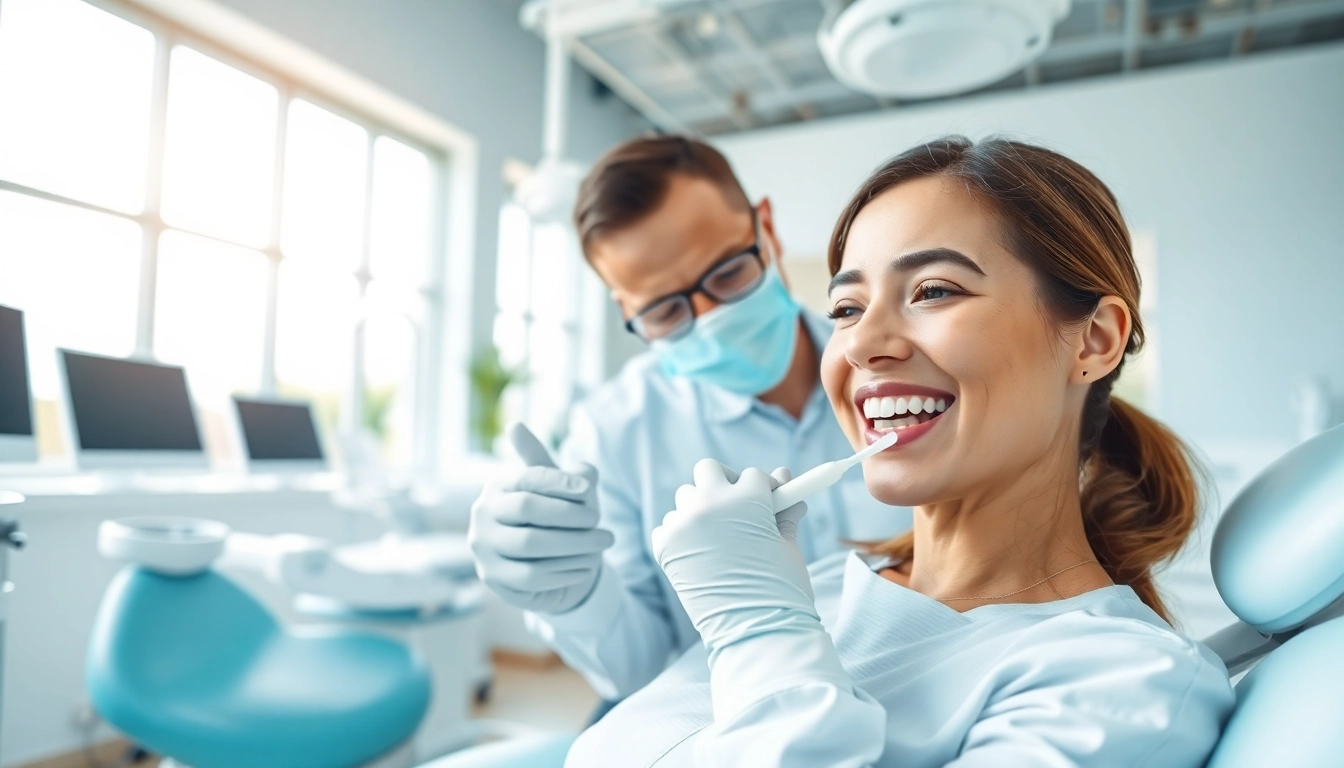Understanding the Importance of Regular Checkups
Regular checkups play a critical role in maintaining both our dental and overall health. They serve not just as a means to catch potential issues early but also provide a framework for prevention and education about good health practices. In the realm of oral health specifically, checkups become a vital tool that assists individuals in ensuring their smiles remain bright and their mouths healthy throughout their lives.
What Are Checkups?
Checkups can be defined as scheduled evaluations conducted by a healthcare professional, in this case, a dentist. These examinations typically occur at regular intervals, allowing smiling faces and their caregivers to stay informed about the health of their teeth and gums. During a dental checkup, professionals assess overall oral hygiene, diagnose any potential issues, and provide treatment recommendations based on the findings.
Benefits of Regular Checkups
The advantages of attending regular dental checkups are numerous and significant. Here are some key benefits:
- Early Detection: One of the foremost benefits is the ability to catch issues like cavities, gum disease, or even early signs of oral cancer before they develop into more severe conditions requiring extensive intervention.
- Preventive Care: Regular checkups facilitate preventive care, which can save time, money, and discomfort when it comes to dental issues.
- Professional Cleaning: Dental hygienists perform cleanings that remove plaque and tartar that are not effectively eliminated through routine brushing and flossing.
- Health Monitoring: Consistent checkups can help monitor existing dental conditions such as restorations or periodontal treatments.
- Education: Patients receive tailored advice on maintaining their oral health at home, which is essential in prolonging the effects of treatment and preventing new issues from arising.
Common Myths About Dental Checkups
Despite their importance, several myths can deter individuals from seeking regular checkups:
- Myth: Checkups are only necessary if you have dental problems. Reality: Regular checkups are vital even for those without apparent issues.
- Myth: They are too expensive. Reality: Investing in preventive care is often more cost-effective than funding major dental work later.
- Myth: They take too much time. Reality: Most checkups are brief, averaging around 30 minutes, and can be easily scheduled at convenient times.
What to Expect During Your Dental Checkup
Initial Assessment and Medical History
Your dental journey at a checkup often begins with a thorough discussion of your medical history. Dentists need to ascertain your overall health, medications you may be taking, allergies, and previous dental procedures. This data helps tailor the dental care to your specific needs.
Typical Procedure Steps
Once your medical history is reviewed, the following steps typically take place:
- Visual Examination: The dentist will inspect your gums, throat, lips, and tongue for signs of abnormalities.
- X-Rays: If necessary, X-rays will be taken to check for cavities or issues below the surface.
- Cleaning: Following the examination, a dental hygienist will perform a comprehensive cleaning, focusing on removing plaque and tartar.
- Fluoride Treatment: In many cases, a fluoride application may be offered to strengthen teeth.
Post-Checkup Follow-Up
Once the checkup and cleaning are completed, the dentist may suggest follow-up appointments for any necessary treatment. This could include filling cavities, scheduling a root canal, or more specialized care.
Frequency of Dental Checkups: How Often Should You Go?
Guidelines for Adults
Most dental professionals recommend that adults visit the dentist every six months for preventive care. However, individuals with unique dental issues may require more frequent visits.
Recommendations for Children
Children should also have regular dental checkups, generally commencing by their first birthday or when their first tooth erupts. Early visits help to establish a foundation for a lifetime of good dental health.
Factors Influencing Checkup Frequency
Several factors may affect how often you should consult your dentist:
- Your Current Oral Health: Patients with a history of dental problems may need to visit more frequently.
- Age: Young children and seniors might have differing dental care needs, advocating for varied checkup schedules.
- Health Conditions: Conditions such as diabetes may necessitate more frequent dental visits.
Common Issues Identified During Checkups
Identifying Cavities Early
Cavities, one of the most common dental issues, are often asymptomatic in their early stages. Regular checkups enable the dentist to detect and address tooth decay before it exacerbates.
Gum Disease Detection
Gum disease can develop quietly but can lead to serious health complications if left unchecked. Dentists check for gum inflammation and provide guidance on oral hygiene practices to prevent periodontal disease.
Oral Cancer Screenings
During routine examinations, dentists also perform screenings for oral cancer, which can be critical for early detection. This typically involves checking the mouth, neck, and throat for unusual lumps or sores.
Preparing for Your Dental Checkup
What to Do Before Your Appointment
To make the most of your dental checkup, consider the following tips:
- Brush and Floss: Maintain your regular dental hygiene routine before the visit.
- Prepare a List of Questions: If you have concerns or queries, write them down to ensure you cover all your bases.
- Arrive Early: Allow time for any office paperwork to avoid rushing.
Questions to Ask Your Dentist
Engaging with your dentist will help clarify your dental health. Here are some critical questions you might consider asking:
- What is the condition of my gums?
- Are there any areas I should be concerned about?
- How can I improve my oral hygiene at home?
- What are your recommendations for future treatments?
Maintaining Oral Health Between Checkups
Even with regular checkups, it’s essential to maintain good oral health practices at home. Brushing at least twice a day, flossing daily, and utilizing mouthwash can significantly reduce the chances of dental issues.



